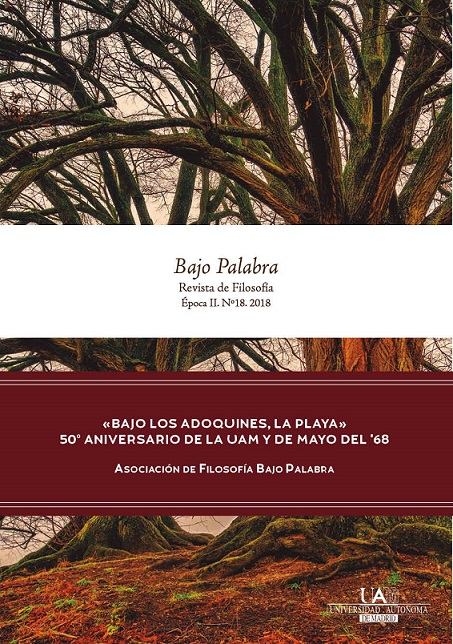Abstract
Abstract
Knowledge is not natural, but one of the ways of thinking achieved by man throughout the course of his vital experiences. Thus, both knowledge and his object, the being of things, are two historical beliefs. This is one of the big differences between Ortega’s metaphysics and Martin Heidegger’s thought.
Keywords: thought, knowledge, reason, Ortega, Heidegger.
Downloads
References
Aristóteles, Metafísica, Calvo, T (introducción y traducción), Gredos, Madrid, 2013.
Benedict, R., Patterns of culture, Mariner books / Houghton Mifflin company, Boston / New York, 2005.
De Nigris, F., “La razón vital de Ortega y Gasset y la analítica existencial de Heidegger”, en Ideas y Valores nº 148, abril 2012, pp. 115-129.
Fortune, R.F., Sorcerers of Dobu, Routledge and Kegan Paul, revised edition, London, 1963.
Heidegger, M., Sein und Zeit, Tübingen, Max Niemeyer Verlag, 2001.
Heidegger, M., Ser y Tiempo, Gaos, J. (trad.), Fondo de Cultura Económica, México, 1974.
Lévy-Bruhl, La mentalidad primitiva, Gregorio Weinberg (trad. y prólogo), La Pléyade, Buenos Aires, 1972.
Marías, J., Historia de la filosofía, Alianza Editorial, Madrid, 2008.
Marías, J., Introducción a la filosofía, Revista de Occidente, décima edición, Madrid, 1969.
Ortega y Gasset, J., Obras Completas, 10 tomos, Taurus y Fundación ortega y Gasset, Madrid, 2004-2010.
Rohde, E., Psiqué, Wenceslao Roces (trad.), Fondo de Cultura Económica, México, 1948.
